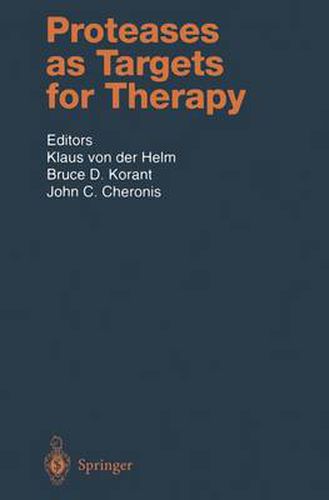Readings Newsletter
Become a Readings Member to make your shopping experience even easier.
Sign in or sign up for free!
You’re not far away from qualifying for FREE standard shipping within Australia
You’ve qualified for FREE standard shipping within Australia
The cart is loading…






This title is printed to order. This book may have been self-published. If so, we cannot guarantee the quality of the content. In the main most books will have gone through the editing process however some may not. We therefore suggest that you be aware of this before ordering this book. If in doubt check either the author or publisher’s details as we are unable to accept any returns unless they are faulty. Please contact us if you have any questions.
Proteolytic enzymes and their natural antagonists, the protease inhibitor pro- teins, play a crucial role in the physiology and pathology of living organisms including humans. Remark able advantages revealed their wide functional context. Proteases digest food proteinase in the digestive tract and liberate poly- peptide hormones, stimulating gastric and pancreatic secretion. Proteases are involved during fertilization in sperm - egg interaction, ovulation, ovum implantation and parturition. Proteases of the renin-angiotensin and kallikrein-kinin systems act synergistically to generate blood pressure regu- lating polypeptides. In wound healing a battery of proteases is involved in the proteolytic cascades of clotting, fibrinolysis and tissue repair.Another battery of very different proteases directs the immune defense via several routes, i.e. complement activation, antigen presentation, the generation of chemokines and chemotaxins directing phagocytes to the site of injury or infection and the generation of cell-stimulating factors such as cytokines regulating the inflam- matory response of the organism.Granzymes contribute to the toxicity of lym- phocytes or killer cells,caspases regulate physiological cell death and calpains intracellular signaling cascades. The energy-dependent proteasome-ubiquitin system controls highly efficientl y the activity or level of intracellular proteins, including cell-cycle regulators, transcription and signal transduction factors, oncoproteins and short-lived metabolic enzymes.And this listing is far from complete.
$9.00 standard shipping within Australia
FREE standard shipping within Australia for orders over $100.00
Express & International shipping calculated at checkout
This title is printed to order. This book may have been self-published. If so, we cannot guarantee the quality of the content. In the main most books will have gone through the editing process however some may not. We therefore suggest that you be aware of this before ordering this book. If in doubt check either the author or publisher’s details as we are unable to accept any returns unless they are faulty. Please contact us if you have any questions.
Proteolytic enzymes and their natural antagonists, the protease inhibitor pro- teins, play a crucial role in the physiology and pathology of living organisms including humans. Remark able advantages revealed their wide functional context. Proteases digest food proteinase in the digestive tract and liberate poly- peptide hormones, stimulating gastric and pancreatic secretion. Proteases are involved during fertilization in sperm - egg interaction, ovulation, ovum implantation and parturition. Proteases of the renin-angiotensin and kallikrein-kinin systems act synergistically to generate blood pressure regu- lating polypeptides. In wound healing a battery of proteases is involved in the proteolytic cascades of clotting, fibrinolysis and tissue repair.Another battery of very different proteases directs the immune defense via several routes, i.e. complement activation, antigen presentation, the generation of chemokines and chemotaxins directing phagocytes to the site of injury or infection and the generation of cell-stimulating factors such as cytokines regulating the inflam- matory response of the organism.Granzymes contribute to the toxicity of lym- phocytes or killer cells,caspases regulate physiological cell death and calpains intracellular signaling cascades. The energy-dependent proteasome-ubiquitin system controls highly efficientl y the activity or level of intracellular proteins, including cell-cycle regulators, transcription and signal transduction factors, oncoproteins and short-lived metabolic enzymes.And this listing is far from complete.